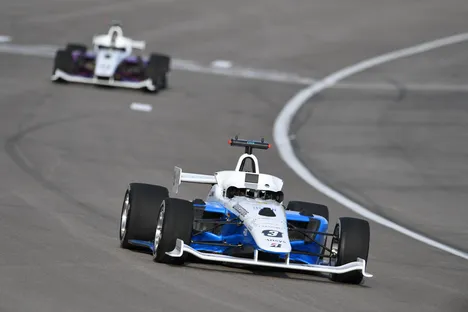The work of the automotive research group is concerned with the control of vehicle suspension and motion planning and control for autonomous driving.
Autonomous Driving

The Chair of Automatic Control and the Chair of Vehicle Technology work together on the development of autonomous driving software. The automotive research group of the Chair of Automatic Control is focused on motion planning and control. The key challenges are efficient and safe operation in complex scenarios, interaction of multiple vehicles as well as driving at the limits of handling. The research group enters the Indy Autonomous Challenge together with the Chair of Vehicle Technology to benchmark their algorithms under real-world conditions. The race will be held with several international universities in fall 2021 at the Indianapolis Motor Speedwith with fully autonomous race cars. More Information on the racing team of TUM can be found here. The picture on the left shows a test-drive with an autonomous race-car of the Roborace racing series.
Active Suspension Systems
Active suspension systems can significantly contribute to the comfort and safety of passenger cars by minimizing the vibrations acting on passengers and by reducing the dynamic wheel load. With active control, different design objectives can transparently be achieved while design restrictions like state and input constraints can be taken into account. Recent developments of our research include proactive preview control methods as well as the support of these through connected driving and car-to-x communication. The so-called hybrid suspension system, developed at our institute, is depicted in the figure; it includes a low-bandwidth spring mount adjustment and a high bandwidth variable damper, which enable high performance and low power demand at the same time.
